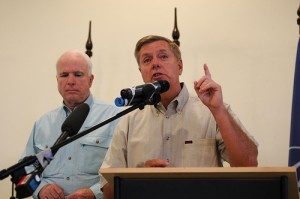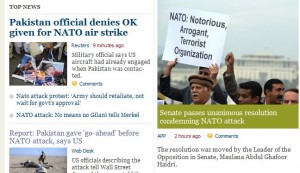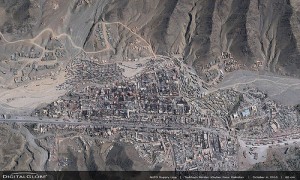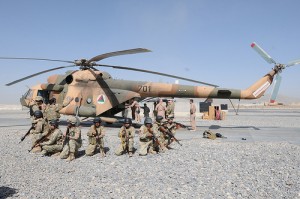While NY Times Agitates for Resumption of Drone Strikes, Peace Talks Set to Add Afghanistan, Haqqani Network
Over the weekend, the New York Times published a piece whose headline seemed to cry out that drone strikes in Pakistan need to resume: “Lull in Strikes by U.S. Drones Aids Militants in Pakistan”. In reading the article, it is difficult to find strong evidence for the claim that the lull in strikes has helped militant groups. While the article does note a slight uptick in some forms of violence, there have been no major attacks on US forces in Afghanistan as one would expect if the insurgent groups truly had gained significant additional strength and operational capability. An alternative reading of the lull in strikes, however, is that it has provided an important opening for negotiations aimed at ending hostilities in Afghanistan. Two very important developments on that front are now in place, as Afghanistan is sending a delegation to Qatar to visit the newly established Taliban office there and the Express Tribune reports that the US is ready for the Haqqani network to take part in the peace negotiations. In the meantime, the Express Tribune also reports that negotiations between Pakistan and the US have nearly reached the point that drone strikes will resume. If the strikes resume, will progress in the peace talks be slowed or halted?
The poor footing on which the Times bases its claim that insurgents have been aided by the suspension of drone attacks is given away in the opening sentence of the article:
A nearly two-month lull in American drone strikes in Pakistan has helped embolden Al Qaeda and several Pakistani militant factions to regroup, increase attacks against Pakistani security forces and threaten intensified strikes against allied forces in Afghanistan, American and Pakistani officials say.
Attacks on the US have not increased, we only have American and Pakistani officials saying that “intensified” strikes on NATO forces are possible or threatened. As for the increase in attacks on Pakistani security forces, we have this:
Other militant groups continue attacking Pakistani forces. Just last week, Taliban insurgents killed 15 security soldiers who had been kidnapped in retaliation for the death of a militant commander.
The spike in violence in the tribal areas — up nearly 10 percent in 2011 from the previous year, according to a new independent report — comes amid reports of negotiations between Pakistan’s government and some local Taliban factions, although the military denies that such talks are taking place.
So that’s it when it comes to documentation of the strengthening of militant groups: a 10% increase for the year in violence in tribal areas, when the drone “pause” has only been for the last two months or so, with earlier shorter pauses over the Raymond Davis incident and the killing of Osama bin Laden.
The article also notes that the drones have not stopped flying, it’s just that they are not launching missiles. Perhaps US intelligence personnel will take this opportunity to improve the quality of their intelligence so that fewer innocent civilians will be at risk when missile strikes resume.
Meanwhile, we learn that the newly established office for the Taliban in Qatar is about to be visited by a delegation from Afghanistan’s High Peace Council: Read more →





